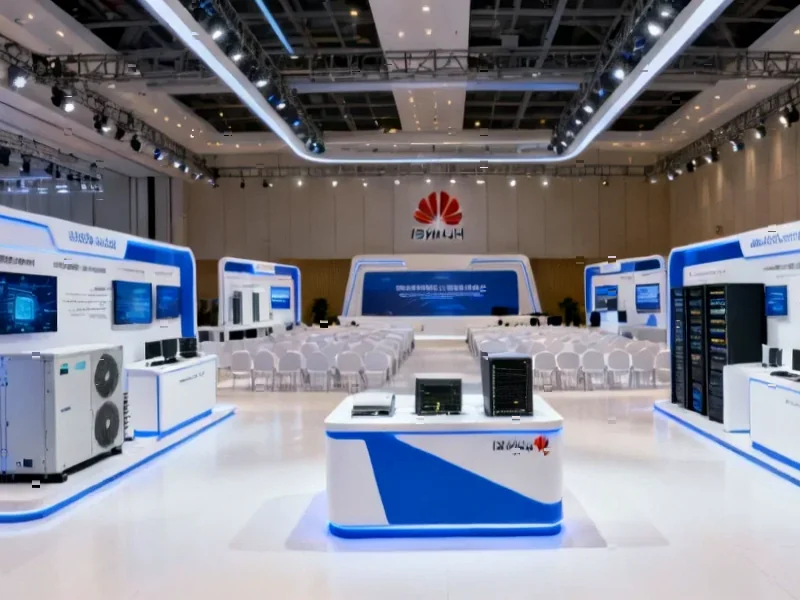According to Fortune, Boyu Capital will acquire up to 60% of Starbucks’ retail operations in China through a new joint venture valued at $4 billion, with Starbucks retaining 40% ownership and continuing to license its brand and intellectual property. The deal concludes Starbucks’ search for a local partner to help navigate China’s challenging market, where the company operates approximately 8,000 stores but has lost ground to local competitor Luckin Coffee, which dethroned Starbucks as China’s largest coffee chain two years ago by offering coffee at one-third the price. Starbucks CEO Brian Niccol expressed confidence in the brand’s long-term potential, stating the company sees a path to grow from 8,000 to over 20,000 stores in China over time. The transaction reflects broader struggles among Western brands in China, where rising nationalism and economic pressures have made consumers less willing to pay premium prices for foreign brands.
The Inevitable Strategic Retreat
This isn’t just another corporate restructuring—it’s a fundamental acknowledgment that Starbucks’ traditional playbook no longer works in China’s rapidly evolving consumer market. The company’s premium positioning, which served it well during China’s economic boom years, has become a liability in an era of economic uncertainty and heightened price sensitivity. What’s particularly telling is that this move comes after Starbucks already tried numerous tactical adjustments—price cuts, localized menus, even free “study rooms”—yet still needed to cede majority control. The pattern mirrors what we’ve seen with other Western brands: when local competition understands consumer psychology and pricing expectations better than you do, ownership structure becomes the final frontier for strategic adaptation.
Why Boyu Brings More Than Money
While the private equity firm’s financial backing is crucial, Boyu’s real value lies in its deep commercial real estate expertise and political connections. Their recent controlling stake in luxury mall operator SKP and control of property management firm Jinke Smart Services gives Starbucks immediate access to premium retail locations and streamlined operations—exactly what the company needs to compete against Luckin’s hyper-efficient store formats. More importantly, Boyu understands how to navigate China’s complex regulatory environment and shifting consumer nationalism, something no amount of market research can teach a Seattle-based executive team. This isn’t just about finding a financial partner; it’s about finding cultural and operational translators who can preserve brand equity while adapting to local realities.
The Domino Effect for Western Brands
Starbucks’ move signals a watershed moment for foreign consumer brands in China. We’re seeing parallel developments with General Mills considering a sale of Häagen-Dazs stores and Restaurant Brands International mulling a Burger King China stake sale. The era of Western brands maintaining full control while expecting Chinese consumers to pay premium prices for foreign cachet is ending. What’s emerging is a new model where foreign companies provide brand IP and product expertise while local partners handle operations, real estate, and market adaptation. The successful examples—McDonald’s and KFC bringing in local investors years ago—show this hybrid approach can work, but it requires Western brands to surrender the control they’ve historically cherished.
The Delicate Balance Ahead
The most critical challenge Boyu faces is maintaining Starbucks’ premium positioning while competing on price—a near-impossible balancing act in any market, let alone China’s hyper-competitive landscape. If they discount too aggressively, they risk eroding the brand equity that justifies Starbucks’ premium in the first place. If they maintain current pricing, they’ll continue losing share to more affordable local competitors. The joint venture structure creates additional complexity around decision-making, brand consistency, and long-term strategic alignment. There’s also the question of whether Chinese consumers will still perceive Starbucks as aspirational once it’s majority-owned by a local private equity firm—the very foreignness that once made it desirable might become its liability.
Survival Through Adaptation
This deal represents Starbucks’ recognition that surviving in China requires fundamentally different strategies than those that worked in Western markets. The company’s recent return to comparable sales growth suggests their tactical adjustments were starting to work, but apparently not fast enough to justify going it alone. For other Western brands watching this unfold, the lesson is clear: local knowledge and operational control are becoming non-negotiable in China’s consumer market. The question isn’t whether to partner, but when and with whom—and how much control you’re willing to surrender to maintain market relevance.




